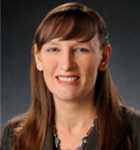17 Apr CDC Discusses Best Practices and Resources For Childhood ADHD
 MedicalResearch.com Interview with:
MedicalResearch.com Interview with:
Susanna N. Visser, DrPH
Epidemiologist at the National Center on Birth Defects and Developmental Disabilities
CDC
Medical Research: What is the background for this study? What are the main findings?
Dr. Visser: Attention-Deficit/Hyperactivity Disorder, or ADHD is one of the most common chronic conditions of childhood. It often persists into adulthood. When children diagnosed with ADHD receive proper treatment, they have the best chance of thriving at home, doing well at school, and making and keeping friends.
In 2011, the American Academy of Pediatrics (AAP) updated their guidelines for ADHD treatment. The new guidelines give this advice to healthcare providers, psychologists, educators, and parents of children with ADHD:
- For preschoolers ages 4-5 with ADHD, use behavioral therapy before medication.
- For older children and teens with ADHD, use behavioral therapy along with medication.
In order to learn more about ADHD treatment patterns, CDC researchers looked at data from a national sample of children with special health care needs, ages 4-17 years, collected in 2009-10 just before the release of the 2011 guidelines.
We found that most children with ADHD received either medication treatment or behavioral therapy as well as some other form of ADHD therapy to help. However, we also found that many children were not receiving treatment in the way it was outlined in the 2011 best practice guidelines.
- Less than 1 in 3 children with ADHD received both medication treatment and behavioral therapy, the preferred treatment approach for children ages 6 and older.
- Only half of preschoolers (4-5 years of age) with ADHD received behavioral therapy, which is now the recommended first-line treatment for this group.
- About half of preschoolers with ADHD were taking medication for ADHD, and about 1 in 4 were treated only with medication.
Medical Research: What should clinicians and patients take away from your report?
Dr. Visser: This is important information for healthcare providers so that they can gain a greater understanding of the patterns of treatment for ADHD, and what more may need to be done to improve the quality of care for children with ADHD.
Effective behavioral therapy for children with ADHD involves parent training and education. This therapy helps to improve child behavior by building parenting skills, improving the relationship between parents and their child with ADHD, and helping children manage their own behaviors. Behavioral therapy is an important part of treatment for children with ADHD of all ages, and it is the most appropriate treatment for children under the age of 6.
It can often be challenging to find behavioral therapy or other psychological resources. CDC encourages healthcare providers, psychologists, and educators to familiarize themselves with the available psychological resources in their communities in order to best guide patients and their families. Also, with all of the information available, we encourage families to look for evidence-based information (facts, not myths) from credible sources. Discuss with your child’s healthcare provider the treatment options consistent with AAP guidelines, including behavioral therapy.
Medical Research: What recommendations do you have for future research as a result of this study?
Dr. Visser: At the time the current guidelines were released, treatment patterns were different from recommendations. More recent data are needed to understand if the treatment patterns have become more aligned with the current medical practice guidelines. Increasing rates of behavioral therapy among preschool-aged children with ADHD would mean that more children are receiving treatment based on best practice for ADHD, and could improve the quality of care for children with ADHD. We also need to learn more about barriers to effective behavioral treatment that clinicians and parent might encounter.
Medical Research: What are some resources for parents and clinicians?
Dr. Visser: Recommended resources to review include:
- CDC’s resource page on ADHD treatment http://www.cdc.gov/ncbddd/adhd/treatment.html
- The National Resource Center on ADHD, a program from the group, Children and Adults with Attention-Deficit/Hyperactivity Disorder (CHADD), can help. This organization, funded by CDC, is the national clearinghouse for the latest evidence-based information on ADHD. They provide comprehensive information and support to individuals with ADHD, their families and friends, and the professionals involved in their lives.
- A review of effective treatments for preschoolers by the Agency for Healthcare Research and Quality is here.
Parents are part of the solution, too. Collectively, the child, parents, educators, therapists, and healthcare providers are a team in supporting each child in their quest for long-term health and well-being. Make sure your child gets what is best!
For more information about ADHD, visit www.cdc.gov/adhd.
For information on the American Academy of Pediatrics Guidelines on diagnosing, evaluating, and treating ADHD, visit http://www.cdc.gov/ncbddd/adhd/guidelines.html.
Recommended resources to review include:
- Infographic on ADHD treatment for preschool-aged children (PDF – 950 KB)
- Infographic on ADHD treatment for older children and teens (PDF – 1.4 MB)
- CDC’s resource page on ADHD treatment http://www.cdc.gov/ncbddd/adhd/treatment.html
Citation:
Treatment of Attention Deficit/Hyperactivity Disorder among Children with Special Health Care Needs
The Journal of Pediatrics Susanna N. Visser, DrPH, Rebecca H. Bitsko, PhD, Melissa L. Danielson, MSPH, Reem M. Ghandour, DrPH, Stephen J. Blumberg, PhD, Laura A. Schieve, PhD, Joseph R. Holbrook, PhD, Mark L. Wolraich, MD, Steven P. Cuffe, MD
Received: October 24, 2014; Received in revised form: January 2, 2015; Accepted: February 6, 2015; Published Online: March 31, 2015
DOI: http://dx.doi.org/10.1016/j.jpeds.2015.02.018
[wysija_form id=”1″]
MedicalResearch.com Interview with: Susanna N. Visser, DrPH (2015). CDC Discusses Best Practices and Resources For Childhood ADHD
Last Updated on July 17, 2015 by Marie Benz MD FAAD
